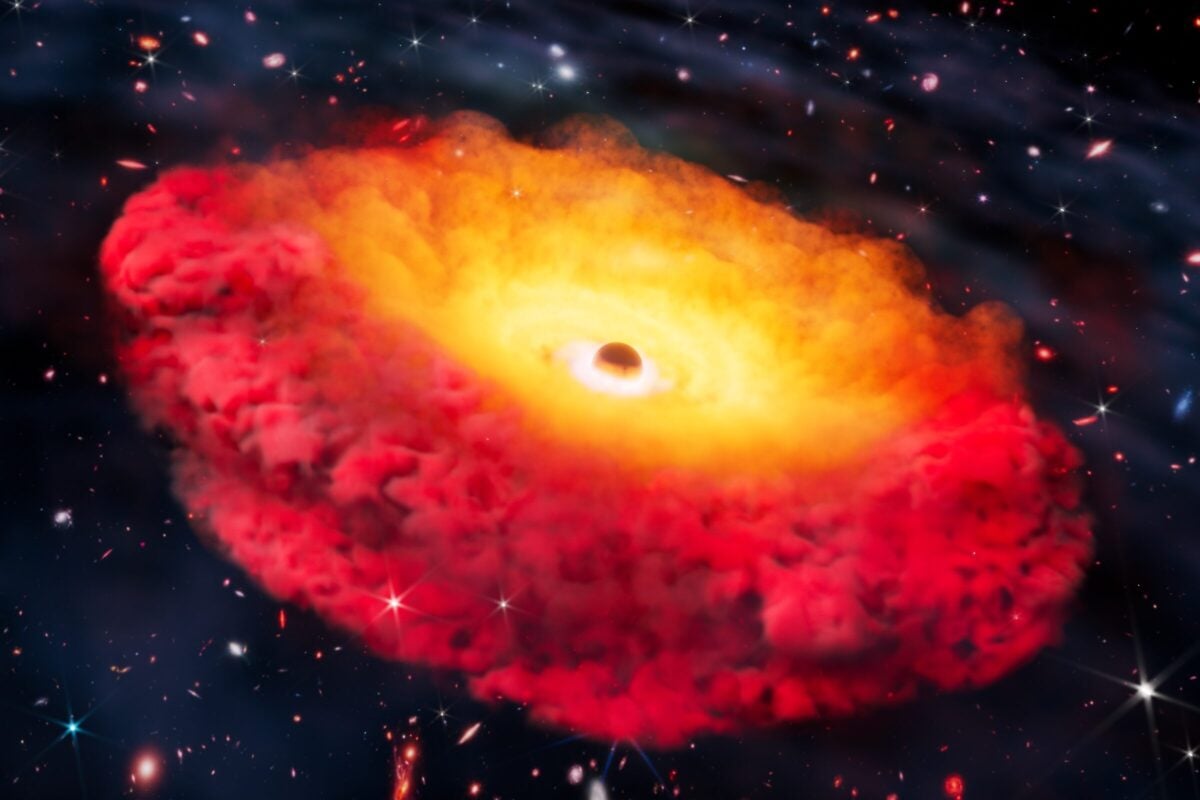Astronomers have confirmed the existence of the earliest known black hole, dating back to just 500 million years after the Big Bang. This remarkable discovery comes from an international team, led by researchers at The University of Texas at Austin’s Cosmic Frontier Center. The black hole sits at the heart of the galaxy CAPERS-LRD-z9, providing new insight into the universe’s infancy.

Unveiling a Cosmic Dawn Relic
The black hole, observed as it was 13.3 billion years ago, offers scientists a rare look at the universe during its formative stages. The CAPERS-LRD-z9 galaxy, where this black hole resides, formed just half a billion years post-Big Bang. By studying such ancient cosmic objects, astronomers can better understand how black holes and galaxies evolved in the early universe.
Why This Matters for Astronomy
This discovery gives astronomers a unique opportunity to explore the structure and evolution of the universe during the period called the “cosmic dawn”. Understanding these early black holes can help unravel mysteries about galaxy formation, star birth, and the growth of supermassive black holes.
Sources:
Universe Today: Astronomers Spot the Earliest Confirmed Black Hole at Cosmic Dawn